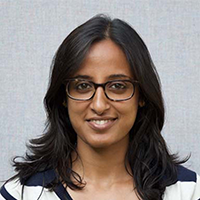
Email: shamya@upenn.edu
Position: PhD Candidate
Current Institution: University of Pennsylvania (Penn Center for Learning Analytics)
Abstract: The Upstream Sources of Bias: Investigating Theory, Design, and Methods Shaping Adaptive Systems in Education
Adaptive systems in education need to ensure population validity to meet the needs of all students for an equitable outcome. Recent research highlights how these systems encode societal biases leading to discriminatory behaviors towards specific student subpopulations. However the focus has mostly been on investigating bias in predictive modeling particularly its downstream stages like model development and evaluation. My dissertation work hypothesizes that the upstream sources (i.e. theory design training data collection method) in the development of adaptive systems also contribute to the bias in these systems highlighting the need for a nuanced approach to conducting fairness research. By empirically analyzing student data previously collected from various virtual learning environments I investigate demographic disparities in three cases representative of the aspects that shape technological advancements in education: 1) non-conformance of data to a widely-accepted theoretical model of emotion 2) differing implications of technology design on student outcomes and 3) varying effectiveness of methodological improvements in annotated data collection. In doing so I challenge implicit assumptions of generalizability and provide an evidence-based commentary on future research and design practices in adaptive and artificially intelligent educational systems surrounding how we consider diversity in our investigations.
Bio:
Shamya Karumbaiah is a doctoral candidate at the University of Pennsylvania working at the Penn Center for Learning Analytics. Her research focuses on promoting student engagement and learning in adaptive learning environments in a fair and equitable manner. Her dissertation investigates bias in the upstream sources (e.g. theory design methods) that shape adaptive decision-making in artificially intelligent educational systems. Her work has been published in leading journals on affective computing and educational artificial intelligence with four of her first-authored articles nominated for best research paper awards. Previously she earned a bachelor’s degree in computer science from SJCE India and worked as a software engineer at Cisco Systems on data-driven problem-solving. Following that she earned a master’s degree in computer science from the University of Massachusetts Amherst and conducted research in the USC Institute for Creative Technologies and the Advanced Technologies and AI lab at Cisco.